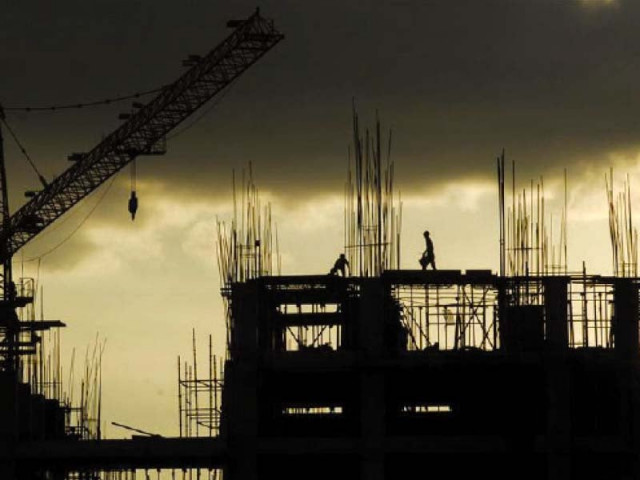Looming crisis : Groundwater extraction a threat to buildings
Water bores and tube-wells have become the norm since major supply projects have not been built

Despite the port city having a water crisis for more than a decade now, the Sindh government has failed to complete major water supply projects, resulting in the city’s populace exploiting Karachi’s groundwater with impunity.
Since the two mega projects, K-IV and 65 MGD, have been delayed multiple times over one pretext or another, residents and industrialists of Karachi alike have resorted to digging bores or installing tube-wells for their daily water needs. Consequently, groundwater which was available at a depth of 50 to 100 feet a couple of decades ago, is now barely available even at a depth of 300 to 350 feet.
While Karachi’s rapidly depleting groundwater reserves might seem like a non-issue to most, geological experts think otherwise. “The way groundwater extraction works the world over is that when you increase your reliance on groundwater, you also invest in replenishing it by making storm drains, which store rain water,” explained Saeed Khawar, a geological expert based in the city. “However, what we are seeing in Karachi is that the city is becoming a concrete jungle, with no storm drains and an increasing dependence on groundwater.”
Khawar termed this dependence a recipe for disaster, adding that rampant groundwater extraction is creating underground voids, which in turn is causing the ground to settle. “This puts the foundations of the buildings in Karachi at risk, especially if there is an earthquake because the ground has settled and now buildings have weaker foundations.”
To avoid such a catastrophe, the expert suggested the city should invest in a rain harvesting system to store rainwater as it would not only increase groundwater levels but also strengthen the soil structure.
However, when asked about implementing Khawar’s suggestion, an official of the Karachi Water & Sewerage Board, speaking on condition of anonymity, told The Express Tribune, that it could not even monitor the groundwater reserves, let alone implement sustainable solutions. “There are major loopholes in our rules, which are exploited by anyone and everyone. Essentially, all the board does is issue no-objection certificates (NOCs) for installation of tube-wells,” the official regretted.
The NOCs that the official mentioned are mostly granted to private companies or industries, which have installed tube-wells along the Lyari River, from where water is supplied to the Sindh Industrial Trading Estates (SITE) by laying underground lines. As per the Water Board’s rules, it is only authorised to monitor these companies’ lines to ensure that no water is being stolen from its’ own supply line - meaning that it cannot take actions against illegal water bores.
Since the water board cannot do much to prevent groundwater extraction, Dr Erum Bashir, a professor at the Geology Department of the University of Karachi, feels that the Board is aiding a much bigger problem. “For instance, the rampant groundwater extraction along the Lyari River is risking damage to the foundations of Lyari Expressway. Similarly, the water bores in residential areas, apart from lowering the water table, are affecting the ecological system and cracking underground structures of buildings,” informed Dr Bashir.
Regional planner, Dr Syed Nawaz-ul-Huda, concurring with Dr Bashir, reiterated Khawar’s suggestions. “The government should build dams around the city; invest in a rain harvesting system within the city; and allow a certain amount of rainwater to move to the sea so that the mangrove forests can be maintained.”
A spokesperson of the Water Board, when asked about implementing the solutions and the department’s disinterest in curtailing groundwater extraction, said that the Sindh government was making a comprehensive policy in this regard. “As soon as they make the policy, the board will start implementing it,” remarked the spokesperson while speaking to The Express Tribune.
Published in The Express Tribune, March 20th, 2023.

















COMMENTS
Comments are moderated and generally will be posted if they are on-topic and not abusive.
For more information, please see our Comments FAQ